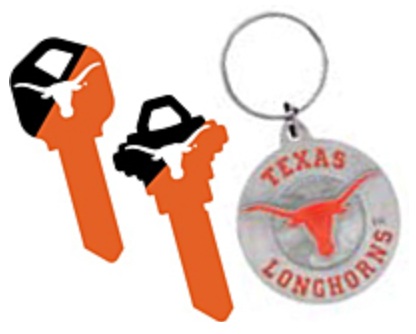Below is a list of selected changes to traffic and criminal statutes that went into effect on September 1, 2011.
**Please note that this is not a comprehensive list**
for a complete list of all new laws passed by the Texas Legislature
visit Texas Legislature Online
 Criminal Laws
Criminal Laws
• Certain synthetic compounds deceptively labeled as “bath salts” and synthetic marijuana products (K2 or spice) have been added to Penalty Group 2 of the Texas Controlled Substances Act. (HB 2118, SB 331). Bath salts contain dangerous stimulants, and K2 mimics the effects of marijuana. Both have been sold in convenience stores and head shops, and have side effects that can be harmful and long‐lasting.
• The electronic transmission or possession of visual material depicting a minor engaging in sexual conduct (“sexting”) has been added as an offense in the Penal Code. The penalty can range from a Class C misdemeanor to Class A misdemeanor, depending on the circumstances. This does not apply to minors involved in a dating relationship or spouses. (SB 407)
• The possession or use of tire deflation devices, commonly known as caltrops, for any purpose other than law enforcement use or as an antique or curio is prohibited. Criminal organizations have increasingly used caltrops as they attempt to evade apprehension, resulting in damage to patrol vehicles and innocent vehicles on the road. (SB 1416)
Traffic Laws
• Tow trucks have now been added to the slow down or move over laws, which require drivers to slow down 20 miles per hour below the speed limit, or to vacate the lane closest to the stopped emergency vehicle that has emergency lights activated if the road has multiple lanes traveling in the same direction. (HB 378)
• Speed limits will now be the same during night and day driving, and separate speed limits for trucks have been eliminated. The maximum speed limit on state highways may be raised to 75 miles per hour if approved after a finding by TxDOT that the increased speed would be reasonable and safe following an engineering and traffic investigation. (HB 1353)
• A driver may not allow a child under 18 to ride in a watercraft while it is being towed on a street or highway. This does not include watercraft being towed on a beach or in a parade. (HB 2981)
• Hardship driver licenses will be suspended if the holder is convicted of two or more moving violations during a 12‐month period. DPS may no longer waive the driver education requirement to issue a 60‐day hardship license. (HB 90)
• Drivers subject to the Driver Responsibility Program will be able to pay the entire three‐year amount of surcharges owed for a violation in advance, rather than paying across all three years. (HB 588).
• Veterans will be exempt from the fee for a personal identification certificate if they can show honorable discharge and at least 60 percent service‐related disability. Disabled veterans are exempted from driver license fees under current law. (HB 1148)
• A veteran designation will be displayed on a driver license for applicants who provide proof of military service and honorable discharge. (HB 1514)
• The Sunset Commission has been charged with reviewing the current oversight structure of driver education and driver safety schools, which are currently overseen by the Texas Education Agency, and determine if another state agency should have oversight. Providers of driver education courses, including DPS for the purposes of parent taught driver education, will be able to provide certificates of completion directly to those who have completed driver education courses. (HB 2678)
• DPS will establish a deferral program for surcharges assessed under the Driver Responsibility Program to military personnel actively deployed outside the U.S. for the duration of the individual’s deployment. (HB 2851)
• Voters will be required to present a driver license, personal identification certificate, military identification, election identification certificate, United States citizenship certificate passport, or concealed handgun license to participate in an election. DPS must create an election identification certificate to be issued by DPS for registered voters who do not have any of the other acceptable forms of photo identification. The election identification certificate will be distinguishable from a driver license or personal identification certificate, and will be issued free of charge to persons only if they do not hold any other acceptable form of identification, as
listed in Election Code 63.0101. These forms of identification include a driver license, personal identification certificate, military identification, a United States citizenship certificate, passport, or concealed handgun license. (SB 14)
• A four‐hour driving safety course was approved for drivers under 25 years old. Drivers under 25 who are cited for a moving violation may be required to take this course. (SB 1330)
• Applicants for a driver license or identification certificate must provide proof that the applicant is lawfully present in the United States. Applicants who are not U.S. citizens, legal permanent residents, or admitted to the U.S. as refugees or asylees are considered temporary visitors. Driver license and identification certificates issued to temporary visitors expire concurrent with the end of the applicant’s lawful presence, or after one year if the legal stay is indefinite. Driver license and identification certificates issued to temporary visitors are to be in the same format and contain the same information as those issued to U.S. citizens and legal permanent residents. (SB 1, 82nd 1st Called Session, effective September 28, 2011)
Weapons
• A person may carry a handgun, knife, or club in a watercraft under the person’s ownership or control. The handgun, knife, or club may not be in plain view, used while engaging in criminal activity, or carried by a member of a criminal street gang. (HB 25)
• Employers may not prohibit employees with a concealed handgun license from having firearms or ammunition in their personal cars in the employer’s parking lot. This does not apply to employees of public, private or charter schools, or employees of chemical manufacturers or oil and gas refiners. (SB 321)
Crime Labs
• Crime laboratories are required to preserve biological evidence used in the investigation or prosecution of a felony for at least 40 years, or until the applicable statute of limitations has expired if there is an un‐apprehended actor associated with the offense. (SB 1616, effective June 17, 2011)
• Law enforcement agencies are required to submit DNA evidence in active sexual assault cases to an accredited laboratory within 30 days of receipt. Once the evidence has been analyzed, the DNA must be compared by DPS to state and federal DNA databases. The bill requires law enforcement agencies to submit unanalyzed DNA evidence collected after September 1, 1996, to DPS for analysis. (SB 1636)
Miscellaneous New Laws
• A new category of missing person alerts may now be issued for missing persons with intellectual disabilities. Activation of this alert includes a requirement of documentation of a qualifying intellectual disability. (HB 1075)
• DPS must create a pass for expedited access to the state Capitol building. To be eligible, an applicant must meet the criteria to apply for a concealed handgun license, with the exception of handgun proficiency requirements. (HB 2131, effective May 30, 2011)
• The Texas Fusion Center Policy Council was created to assist DPS in monitoring fusion center activities in Texas. The council is required to establish a privacy advisory group, recommend best practices for fusion centers in Texas and annually submit a report to the Governor and the Legislature regarding the council’s progress. (HB 3324, effective June 17, 2011)


